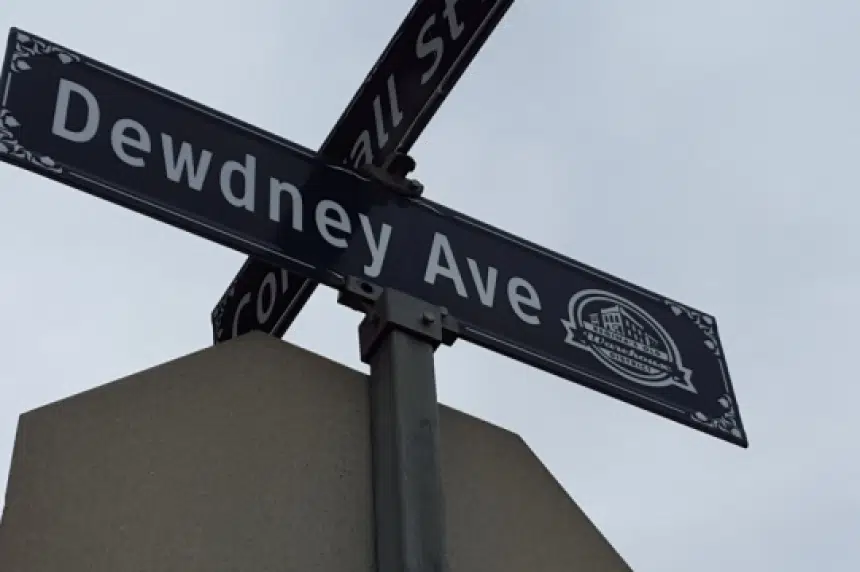Regina city administrators are considering new guidelines around naming and renaming streets, particularly when they are named after controversial historical figures.
On Wednesday, the Regina Planning Commission reviewed recommendations made by the Civic Naming Committee based on a public consultation and online survey from September of last year.
This step is welcome news to local advocate Sue Deranger who is calling for the city to change the name of Dewdney Avenue and Dewdney Park to Buffalo Avenue and Buffalo Meadows. She said when Edgar Dewdney was the Lieutenant Governor of the Northwest Territories – before Saskatchewan became a province – he made decisions that devastated the First Nations and Metis people at the time.
“He went along with Davin to create residential schools, he assisted in the starvation of Nakota and Nehiyawak (Plains) Cree people and Métis and he also convinced Sir John A. MacDonald – who probably didn’t need much convincing – to hang Louis Riel,” Deranger said. “So he did some pretty horrific things, including helping create the pass system to keep people on reserves for 60 years.”
She is part of a national grassroots organization called Righting Relations which is co-hosting a barbecue at Dewdney Park on Wednesday afternoon to educate local residents about the historical significance of the name Dewdney. She described the recommendations laid before council as hopeful, especially alongside momentum from the recent renaming of Davin School to the Crescents.
Deranger maintains while there is a lot of talk about Truth and Reconciliation, there can be no true reconciliation without a sense of justice. She said renaming Dewdney would provide some justice in recognizing that his policies created pain.
“Why don’t we start a whole new era, a whole new world where we can all live in unity and live in peace and not have people feel bad about something that is honoured that has hurt them,” Deranger said.
When asked why it is important to change a name when many people may not make the connection between the name of Dewdney and historical injustice, Deranger said education is key to understand why he should not be honoured.
The potential to rename streets based on reevaluating historical legacies is one the more complex of recommendations coming out of last year’s consultation. Other reasons for renaming streets included changing names to correct spelling and to limit confusion to prevent people from getting lost.
Another recommendation was to address diversity and reconciliation with a 25 per cent quota for using Indigenous names for future streets and 50 per cent for parks.
The online Civic Naming Survey to gauge public support for changing naming guidelines generated 2,270 responses along with more than 65 Facebook comments. According to the city, that represents roughly double that of typical city surveys. More than 55 per cent of people responding agreed city street and park names should reflect the diversity and culture of residents. The city also held internal public engagement sessions with employees, meetings with stakeholder groups and a public open house which had a very low turnout.











